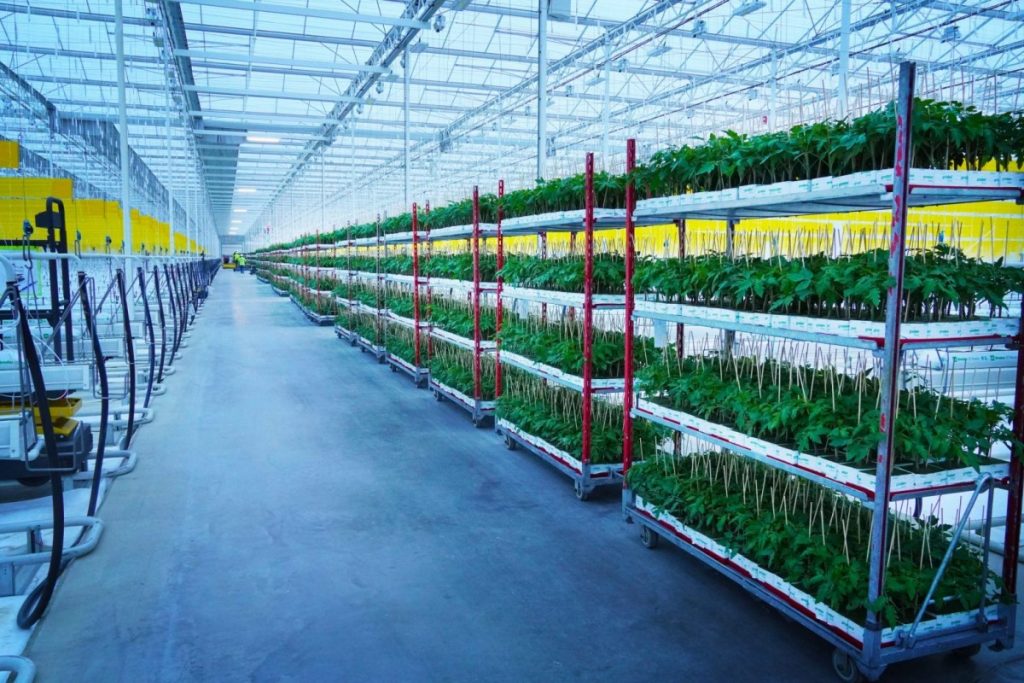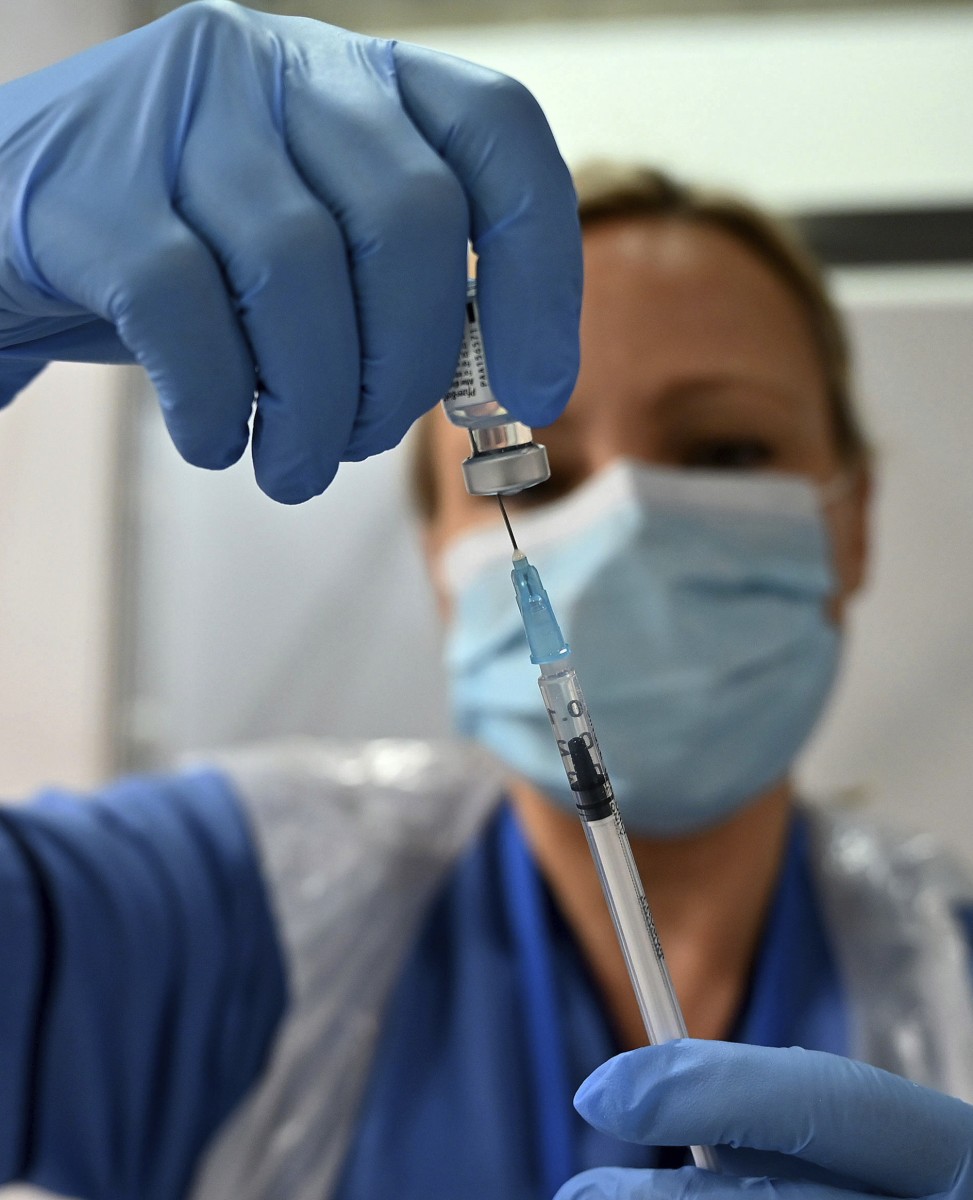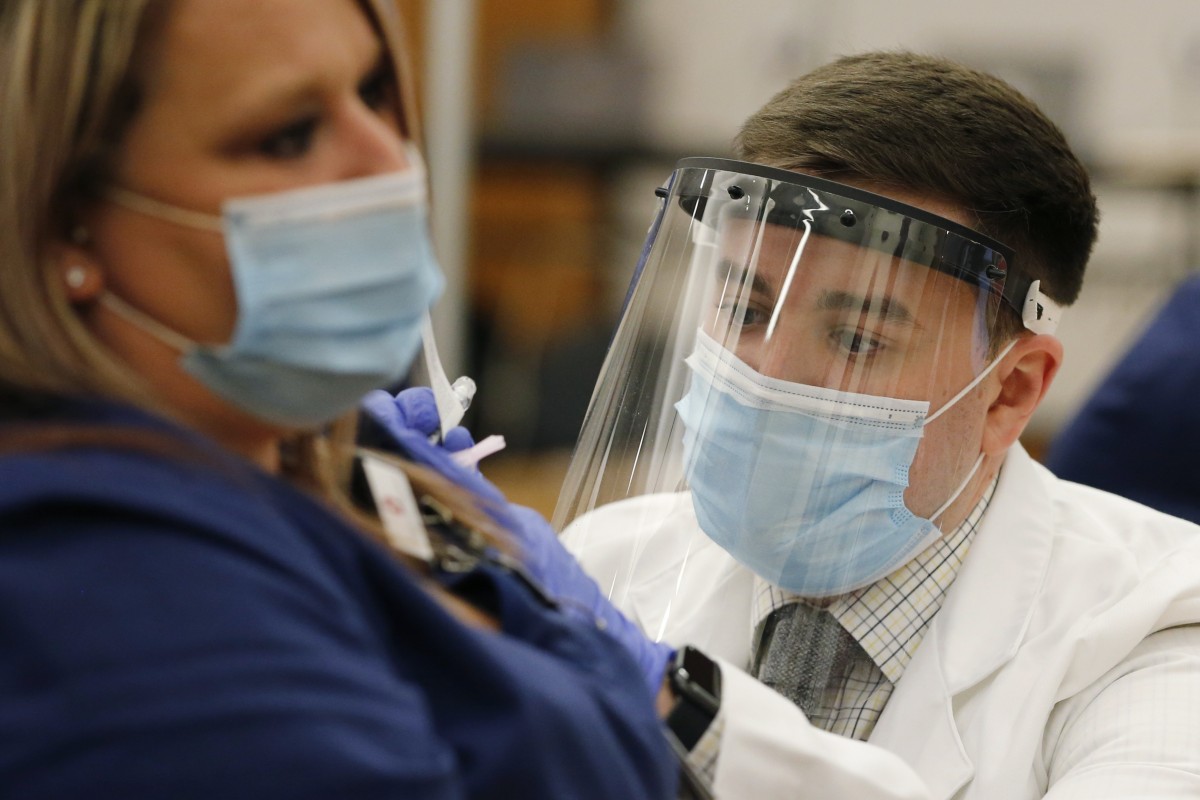A start-up, backed by nearly half-billion-dollar investment, seeks to create living wages and sustainable agricultural practices in the region. Some worry about the impact on traditional farmers and others about the source of the funding.
AppHarvest, the brainchild of Jonathan Webb, son of Corbin, Kentucky, hopes to deliver indoor, large-scale agricultural production, modeled after facilities from the Netherlands, to the Appalachian region.
The goal, the company says, is to create a new way to grow essential crops that will meet the planet’s nutritional needs sustainably and create jobs in Appalachia without depleting the region’s resources.
The Promise of a Revolution
“It is redefining American agriculture. It is job creation. And it is also creating opportunities for getting to know your food system a little better,” said Amy Samples, director of community outreach at AppHarvest. The company recently hired 130 people and anticipates ramping up to between 300 and 350 employees sometime in 2021.
According to Samples, these are not like traditional farming jobs. She said the company is a second-chance employer and is ready to work with employees who may have had drug problems or legal problems in the past. And because those working as growers are employees instead of independent contractors, they are covered by wage and hour laws, workers’ compensation benefits and unemployment insurance.
“The good news is that a lot of very wealthy people think that we have a really good idea, and they have, frankly, allowed us to bring an enormous, unprecedented, amount of capital to Kentucky.”
Amy Samples, director of community outreach at AppHarvest.
“We strive to be a people-oriented company and we are taking measures to redefine American agriculture,” she said. “So, we are a wide step apart from traditional agriculture in that we pay overtime. We have paid time off… We also offer company-paid health premiums for all employees. That means we will always have an opportunity to ensure that our employees have access to that kind of coverage.”
The company is also working with local high schools, colleges and universities to teach about farming, and area leaders think the company will change the economic outlook of the area.
Located on 366 acres in Morehead, Kentucky, about an hour east of Lexington, the flagship farm for the company has a 2.76 million square-foot facility for growing tomatoes. Because the tomatoes are grown indoors in a climate-controlled facility, they can be produced year-round, the company says. The indoor facility also means they are not susceptible to the same pests and pitfalls that anyone who has grown tomatoes understands.
Next to the 60-acre facility, a 10-acre water retention pond collects farm run-off, reducing the algae bloom. In addition, more efficient water delivery methods reduce the amount of water needed by 90 percent. The company already broke ground on two more facilities.
The company projects that the innovative methods will produce a harvest 30 times larger than a traditional farm. AppHarvest estimates that one tomato facility can generate about $50 million in sales annually. The first crop is anticipated early next year.
“It’s far past time for American agriculture to change,” Webb said in a press release. “The pandemic has revealed just how fragile our food system is, and we’re working at the forefront of changing so much that’s wrong with the status quo.”
Questions about Impact
Some in the area, however, have questions about what impact AppHarvest coming to the region would have.
Martin Richards, executive director with the Community Farm Alliance, a nonprofit that supports independent family farmers, said AppHarvest may threaten the livelihoods of smaller farms throughout Kentucky.
“There’s a number of questions that folks have asked about AppHarvest,” Richards said. “In many cases, it’s too soon to tell. We don’t know what is or what will be the impact on Kentucky farmers from having this facility in Kentucky.”

“Because when it comes to selling tomatoes or lettuce or whatever other products that AppHarvest intends to produce, Kentucky farmers produce those too. So, that is one of the questions we have asked is ‘Will AppHarvest be in competition with Kentucky producers?’”
Richards said that in his conversations with Webb, the answer has always been that the goal is to replace produce coming into the country from Mexico.
Samples said that the company’s supply chain would take them into grocery stores and other outlets and that the company wanted to work with local farmers, not against them. The company engaged some of the local producers to supply fresh greens to its canteen and teach workers how to make healthy meals with it.
But, Richards said, local farmers rely on selling their products in more than just farmers’ markets.
“They’re selling them to restaurants. They’re selling them to schools. They’re selling them to grocery stores… When AppHarvest adversely affects Kentucky farmers, then we have a problem.”
Richards chafed at the idea that AppHarvest was transforming farming. “AppHarvest is not farming, in my opinion, and I think a lot of farmers would agree,” he said. “It is industrialized food production just by the sheer scale and mechanization of it.”
Sources of Funding
The company’s finances have caused concern for others.
So far, AppHarvest has raised $485 million through venture capital companies, including Narya Capital, founded by J.D. Vance, former hedge fund manager and author of “Hillbilly Elegy: A Memoir of a Family and Culture in Crisis.” Vance is also on the company’s board of directors.
Vance’s 2016 book (and now a Netflix movie) has created a cottage industry of criticism for the way it portrays working-class whites and interprets the region through the life of one man who was 32 years old when the memoir was published. The response has included two books, a protest at an academic conference where Vance spoke and numerous essays and op/eds (including several published in the Daily Yonder.)
Samples with AppHarvest said she understands the depth of feeling some people have about the book.
“I have talked through that, and have had some really sincere, authentic and painful conversations with people about how they felt about that,” Samples said.
“You know, it was one person’s story. But you know what else? We probably wouldn’t be here without J. D. Vance. He was one of our earliest investors. He was one of the people who were able to use their abilities and their capital to help us get off the ground.”
Samples encouraged people to evaluate AppHarvest’s commitment to the Appalachian region by the work the organization has done.
“The good news is that a lot of very wealthy people think that we have a really good idea, and they have, frankly, allowed us to bring an enormous, unprecedented, amount of capital to Kentucky,” she said. “We bring capital to a community. We brought $110 million in capital to Morehead, Kentucky, that was not there a year ago. We’re already employing 150 and we’re going to be at 300 pretty soon. This is real.”
This article was originally published by The Daily Yonder.



